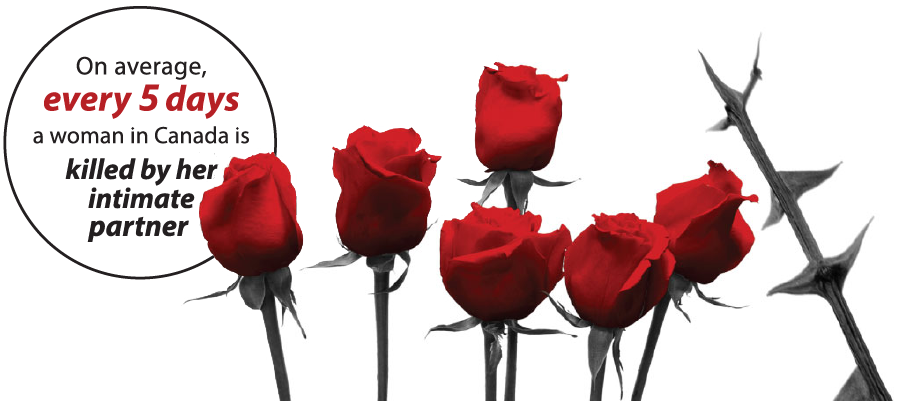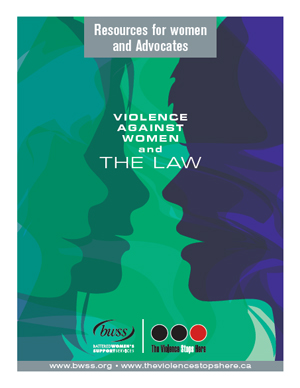Child Welfare
BWSS offers resources for social workers who deal with cases where it has been identified that children are witnessing their mother’s abuse and the woman is struggling with the impact of abuse. In these cases social workers are often unaware of the resources available for women victims.
A Critical Resource
BWSS’ Empowering Mother’s Parenting Program, Healthy Relationships and child minding services are programs BWSS has offered to women when child welfare issues have been identified. Additionally, BWSS provides individual counselling, support groups, crisis support and legal advocacy that help women on their journey to safety and empowerment.
We work collaboratively to ensure the safety of women and their children through community networks. In 2007, BWSS in collaboration with Family Services of Greater Vancouver, MCFD, South Vancouver Neighbourhood House and Kiwassa Neighbourhood House held “Building a Safe Community Café”. A cross sector event where over 100 participants engaged in dialogue about how community agencies can work with collaboratively to provide support to families when there is domestic violence. In 2008, BWSS partnered with PIVOT Legal Society to hold a Community Information and Discussion Session about Aboriginal child protection services in Vancouver. See Mona Woodward Article in this issue of Women Making Waves
Battered Women’s Support Services continues to engage in systemic advocacy to:
- ensure services are provided for the woman victim,
- consider whether any other means other than child apprehension could eliminate the risks faced by the child(ren),
- balance the risk against further trauma that apprehension might bring when determining which course of action is in the best interest of the child,
- ask and listen to the woman victim about what she thinks is the best option for the safety for herself and her children,
- address social problems at the root including reducing poverty through women’s economic development initiatives and other universal public programs
- recognize and redress the colonial legacy of BC and the implications on Aboriginal people
- remove the lens of the dominant culture when working with immigrant women
- work collaboratively with BWSS staff and other community organizations who are providing support to the woman and/or family
- be transparent and accountable and earn the trust of women who have come to the attention of the child protection system
Download our paper “Child Welfare: The Need for Education and Advocacy“
Crisis! BC’s Child Welfare System & Violence Against Women
By Angela Marie MacDougall
Child welfare system is hurting. Despite legislative reform, organizational restructuring, a couple of high profile reports/indictments, and changing governments this system continues to flail and fail children, their families and communities. In BC, one out of every five children lives below the poverty line. Over 9,271 children are living in foster care, more than half of whom are Aboriginal as reported in Broken Promises Parents Speak about BC’s Child Welfare System, a 2008 report commissioned by PIVOT Legal Society. (MCFD Children in Care Trends & Indicators 2006)
The report is an indictment of the province’s child welfare system. Surprisingly, the report highlighted that physical harm by a parent was only cited as a ground for removal in ten percent of child protection cases in the Lower Mainland while, sexual abuse or exploitation by a parent was cited as a reason for removal in less than one percent of cases. (MCFD DESA branch 2005)
Though all of the reports generated in recent years including the 1995 Report of the Gove Inquiry into Child Protection in British Columbia evaluating the Ministry of Children and Family Development (MCFD) recommended preventative political will on the follow through…this has yet to be demonstrated. In the case of Aboriginal women, child welfare in BC continues to operate as a quasi extension of the residential school system (Reconciling Canadian & Indigenous Legal Traditions Conference March 2008) that dismantled Indigenous culture, family structures and where an entire generation of people have been denied parenting knowledge. (Liberating Our Children 1992)
Poverty, Addiction, Mental Health and Violence Against Women
Overwhelmingly the remaining 89% of removals of children were due to parent’s challenges with poverty, addiction, mental health issues or violence against women in relationships all of which intersect in the lives of many women who access BWSS. According to research on child welfare investigations across Canada in 2003 children witnessing their mother’s abuse was the second most commonly citied form of abuse or neglect, accounting for 28 percent of cases. (Statistics Canada 2006 Family Violence in Canada: A Statistical Profile) Witnessing the abuse of their mothers is listed as one of the 23 risk factors and a child is considered to witnessing abuse when they have been present when the abuse occurred or knew indirectly that violence had occurred by overhearing a conversation, abusive incident or witnessing injuries. (Broken Promises 2008).
At Battered Women’s Support Services, through our work, we have learned that abusers frequently use the children as a way to assert power and control over the woman. It is our assertion that if the children are within an earshot of the abuse they are being used, it is not uncommon for abusers to wake children up to bring them into the room to witness the abuse of their mother. After women have left an abusive relationship women are often forced to have contact with abusers through Family Court custody and access. Women are held responsible for their own abuse and for their children witnessing their abuse. Routinely the abuser is ignored by child welfare social workers.
Child protection best practices developed by MCFD for family violence cases in 2004 highlighted the importance of providing an integrated consistent support service and a commitment to providing supports to ensure that the non-abusing partner can keep the children in her care. At BWSS we see that these practices are not being followed and as one Broken Promises focus group participant said:
“There is no accountability on the Ministry’s part to in fact demonstrate that they are, in any capacity, operating by the guiding principles. They are breaking their own law. Here are their operating guiding principles that they themselves are not even implementing. So what does that tell you about an existing organization that is managing the lives of these children?” (Broken Promises page 115)
What We Know
Battered women speak to us about their lives and we’ve learned that women stay in abusive relationships, then leave abusive relationships and then return to abusive relationships for complex reasons which include:
- not recognizing what she is experiencing is abuse
- no information about available support or options
- fear of retaliation from abuser on her, children or her family
- the impact of abuse where her sense of right to autonomy does not exist
- shame, guilt, stigma for being abused in her relationship
- marriage vows, cultural expectations, religious considerations
- wanting to give the abuser a chance to change and believing she can improve the situation if she tries hard enough or loves enough
- social norms that reinforce that children need their father or a father figure
- love
- better to be with the devil you know than the devil you don’t know
We have observed that removing children is often the first, not the last resort where the mother is the victim of abuse and has not directly harmed the child. Though the Ministry has developed a set of comprehensive protocols and practices for responding to violence against women in relationships they are not following their practices (Broken Promises 2008). We have learned that social workers do not have basic knowledge about the dynamics involved in abusive relationships and are often reluctant to provide adequate support for women attempting to leave abusive relationships.
This inaction appears to grow, in part, due to insufficient training in college and university programs, specialized knowledge such supporting immigrant women and families are optional in most college/university programs, child protection social workers tend to be fresh out of school with little to no relevant life or work experience and there seems to be a concern from social workers that women’s advocates will not disclose child protection issues. Further, there appears to be a serious problem embedded in the organizational culture of the ministry that inhibits critical thinking, there appears to be an organizational culture of fear, there is a serious lack of support for social workers on the front line by the leadership at all levels. What we end up with are people with the very best intentions come to the ministry with a sincere desire to do good work and make change and end up disillusioned as they transform into social “police” who emphasize surveillance of families while practices the emphasize “help and service” erode… and social change is rarely if ever mentioned and never initiated.
A Critical Resource
At BWSS, though we are a resource for social workers when it has been identified that children are witnessing their mother’s abuse and the woman is struggling with the impact of abuse social workers are often unaware of the resources available for women victims. Empowering Mother’s Parenting Program, Healthy Relationships and child minding services are programs BWSS has offered to women when child welfare issues have been identified. Additionally, BWSS provides individual counselling, support groups, crisis support and legal advocacy that help women on their journey to safety and empowerment.
We work collaboratively to ensure the safety of women and their children through community networks. In 2007, BWSS in collaboration with Family Services of Greater Vancouver, MCFD, South Vancouver Neighbourhood House and Kiwassa Neighbourhood House held “Building a Safe Community Café”. A cross sector event where over 100 participants engaged in dialogue about how community agencies can work with collaboratively to provide support to families when there is domestic violence. In 2008, BWSS partnered with PIVOT Legal Society to hold a Community Information and Discussion Session about Aboriginal child protection services in Vancouver. See Mona Woodward Article in this issue of Women Making Waves
Battered Women’s Support Services continues to engage in systemic advocacy to:
- ensure services are provided for the woman victim,
- consider whether any other means other than child apprehension could eliminate the risks faced by the child(ren),
- balance the risk against further trauma that apprehension might bring when determining which course of action is in the best interest of the child,
- ask and listen to the woman victim about what she thinks is the best option for the safety for herself and her children,
- address social problems at the root including reducing poverty through women’s economic development initiatives and other universal public programs
- recognize and redress the colonial legacy of BC and the implications on Aboriginal people
- remove the lens of the dominant culture when working with immigrant women
- work collaboratively with BWSS staff and other community organizations who are providing support to the woman and/or family
- be transparent and accountable and earn the trust of women who have come to the attention of the child protection system
Download our legal resource manual for Front-line workers who deal with violence against women.
More resources:
- Domestic homicide is Predictable and Preventable
- B.C. girls’ deaths prompt debate about how judges handle domestic-violence cases
- Girls’ deaths in B.C. see questions raised about judges and domestic violence
- Angela Marie MacDougall, BWSS ED interview on Roundhouse Radio
- In October 2017 BWSS wrote an open letter to B.C. Minster of Justice, David Eby on the Provincial Court Family Rules Project which includes the “Consensual Dispute Resolution”(“CDR”).


